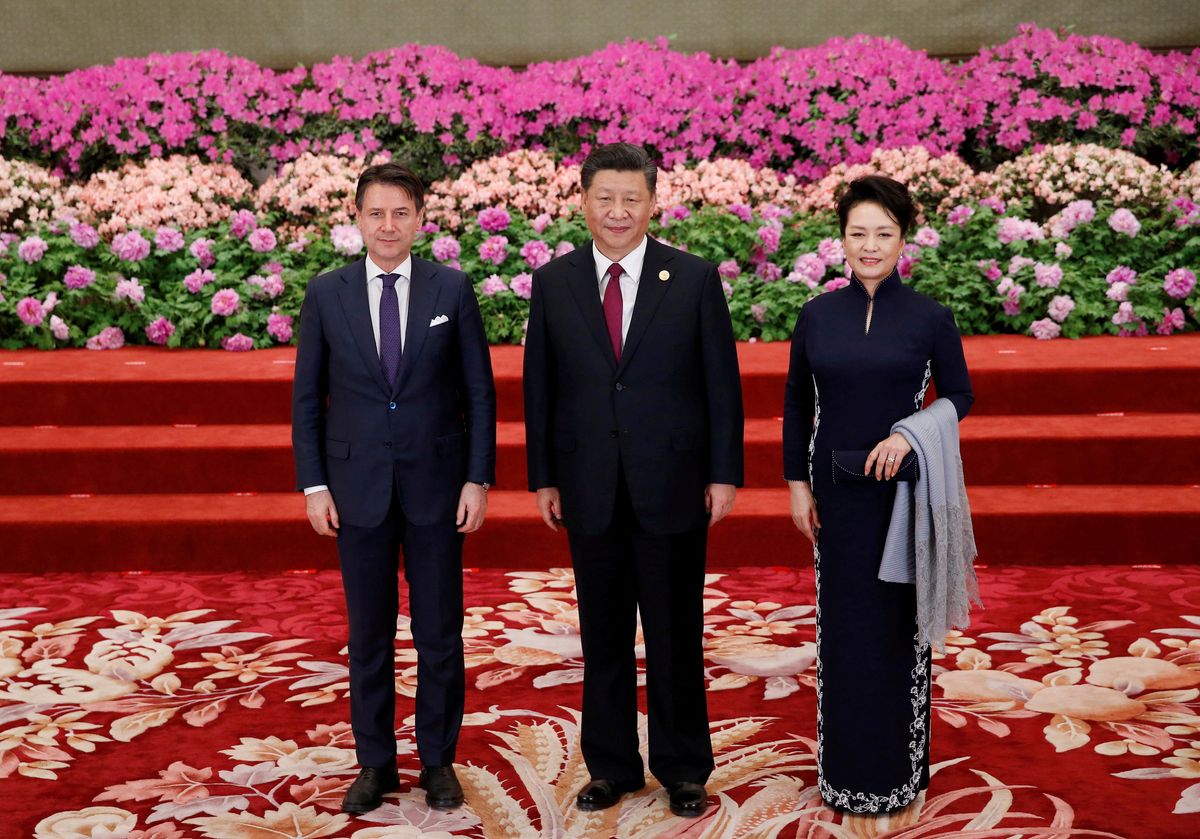Italy’s exports to China are booming – but why?
Italy's exports to China skyrocketed to more than €3 billion (US$3.3 billion) just in February.

A few minutes every morning is all you need.
Stay up to date on the world's Headlines and Human Stories. It's fun, it's factual, it's fluff-free.
The backstory: Just to refresh your memory – China's Belt and Road Initiative (BRI) is a massive project that's all about connecting Asia, Europe and Africa through a network of infrastructure projects. As we mentioned last week, Italy became the only G7 country to sign up for the BRI in 2019, and it was supposed to be a win-win for both countries. But things didn't pan out as hoped. In fact, Italy's exports to China increased by only €3.4 billion (US$3.7 billion) last year, while China's exports to Italy jumped by a whopping €25.8 billion (US$28.1 billion). That looks like a pretty one-sided deal.
More recently: Italy and China's relationship started chilling when Mario Draghi became prime minister in 2021. He wasn't too keen on the idea of Italian businesses falling into Chinese hands and ended up rejecting at least three takeover bids from China during his time.
Then, last week, Italian news agency Ansa reported that Italy’s new Prime Minister Giorgia Meloni wasn’t really feeling the whole BRI deal from the beginning. Now, rumor has it that Italy might back out of the deal altogether by the end of this year. But why the rush? Well, if neither country gives a three-month heads-up in advance they want out, the deal will automatically renew in March next year. But Italy’s decision isn’t 100% confirmed and Meloni's advisors are reportedly worried about how China will react. So, we might have to wait and see what all goes down at the G7 meeting in Japan next month.
The development: But, in a surprising twist, Italy's exports to China skyrocketed to more than €3 billion (US$3.3 billion) just in February. That's a 131% increase from last year. On top of that, they increased by 137% in January. So now experts are scratching their heads, trying to figure out what's causing this sudden boom after all this time. But most of the growth seems to be coming from one sector – pharmaceuticals. In fact, this category made up almost two-thirds of all of those exports.
One theory is that a chemical called UDCA, short for ursodeoxycholic acid, might have been the driving force behind the growth. It’s found mostly in liver drugs, but some think it helps prevent COVID. With China relaxing its zero-COVID strategy in December, the country might’ve been stocking up on this drug.
But that doesn't seem to add up since the world's largest UDCA producer in Italy only has yearly sales of €300 million (US$326 million), which is way less than the country’s exports to China. Plus, most of China’s population got COVID in December and January, so they would have already been better by the time these export numbers started rising.
What's even weirder is that recent Chinese trade data shows no indication of these products arriving in big quantities. It's a real mystery because the drugs should have shown up in April's trade data, but there’s no sign of any big changes. So another theory is that regional trade is shifting, and medicine from nearby countries is being brought into Italy for export to China, too.
Key comments:
Italy's export surge to China
— Robin Brooks (@RobinBrooksIIF) May 9, 2023
1. Last week we flagged a big rise in Italian exports to China. Here's the story. Without western vaccines, China's consumers are buying a generic liver drug made in Italy that's rumored to prevent COVID. Big thanks to @bancaditalia and @p_ceretti... pic.twitter.com/mlHnJXF6tL
“It’s likely demand for medicines from China,” said Peter Ceretti, a director at Eurasia Group who investigated the matter. “Larger Italian pharma producers are shipping as much Italian-made product as they can. And perhaps some are moving German and other European Union-produced medicine into Italy for re-export to China too.”
“Italy is stuck between a rock and a hard place, and what to do with the cooperation pact is a real diplomatic conundrum for Meloni,” said Francesca Ghiretti, an analyst at the Mercator Institute for China Studies research firm, in an interview, about Italy’s participation in the BRI. “Renewing it would send a very difficult message to Washington, but not renewing it would put a strain in relations with China.”
"It's a delicate decision," said Italian Prime Minister Giorgia Meloni on Wednesday about the BRI pact to Italian reporters during a visit to Prague, according to news agency Ansa. She also mentioned that she "didn't agree" with the pact signed in 2019 by then-Prime Minister Giuseppe Conte, as reported by Ansa.




Comments ()